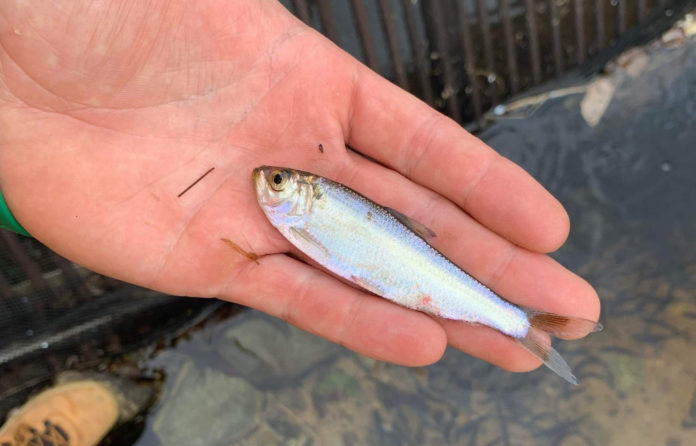
Terry Ann Sappier, a Wolastoqi land defender, presented at St. Thomas University’s Environmental Praxis Class on Feb. 28 about her efforts to protect the Miramichi Lake for the last two summers.
In a commentary she wrote for the NB Media Co-Op in July 2022 titled “We are here for the heart of our land,” she emphasized the need to protect the lake.
“My children deserve to have their inheritance. My grandchildren deserve that as well and the next seven generations,” she said in the presentation at STU.
“If we don’t start looking after ourselves in this land, we’re all going to be in pretty bad shape.”
Miramichi Lake has been plagued with smallmouth bass, an invasive species that threatens the salmon population, since 2008. A consortium, which included the Atlantic Salmon Federation (ASF), the Miramichi Salmon Conservation Centre, the New Brunswick Salmon Council, Anqotum Resource Management, the Miramichi Water Management Committee, the NB Wildlife Management Committee and the Northshore Micmac District Council, proposed eliminating the fish with Noxfish Fish Toxicant II, which contains rotenone.
“They could not put the poison in the water if we were in, so we jumped on canoes and kayaks and went out on the water,” said Sappier.
According to Sappier, the six chiefs of the Wolastoqey Nation of New Brunswick were not consulted when the ASF planned the extermination. In late July 2022, she said the community only found out two days before the spraying.
Sappier said the documentation showed that communities were not consulted, instead collaborating with two corporate entities.
The Wolastoqey mothers and grandmothers, a group of which Sappier is a member, were able to reach an agreement through a court case to suspend the project in September 2022. Still, by then, the ASF had already started phase one of the project.
Related: ‘Leave the fucking salmon alone:’ ASF accused of poisoning Miramichi Lake
Still, Sappier is frustrated that the group had to go out and protect the lake in the first place.
“We’re not doing it because we enjoy it. Trust me, we would rather be with our kids doing other things,” she said.
Sappier said the issue of the invasive species is still present, but her community has come up with a solution that does not endanger the wildlife of the lake and its surroundings. The solution would involve people snorkelling in the water to destroy smallmouth bass nests.
She said it would maintain the lake’s integrity.
“We offered that plan to [the consortium] and they rejected it because of the cost,” she said.
“It’s all about economics. To eradicate is more cost-effective than to do it in a more gentle and responsible way.”
She said the provincial government is not doing a good job on the reconciliation of Indigenous people in regard to their land and remains unsure about the future of Miramichi Lake.
“It’s our heart and we need to protect it because it keeps us alive,” said Sappier.
